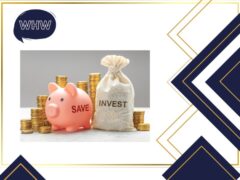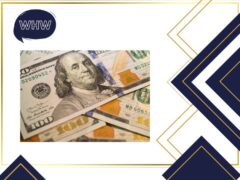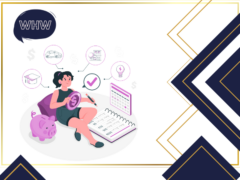10 best finance books

Reading finance books is one of the best ways to enhance your financial literacy and improve your money management skills. Whether you’re a novice looking to understand the basics of personal finance or an experienced investor seeking advanced strategies, there’s a book out there for you. This article highlights some of the best finance books that cover a wide range of topics, from budgeting and saving to investing and wealth building.
1. “Rich Dad Poor Dad” by Robert T. Kiyosaki
“Rich Dad Poor Dad” is a classic personal finance book that contrasts the financial philosophies of the author’s two fathers: his biological father (Poor Dad) and his best friend’s father (Rich Dad). The book emphasizes the importance of financial education, investing in assets, and understanding how money works.
Key Takeaways
- Financial Education: The importance of financial literacy and continuous learning.
- Assets vs. Liabilities: Focus on acquiring assets that generate income.
- Entrepreneurship: Encourages thinking like a business owner and investor.
This book is perfect for beginners who want to change their mindset about money and start building wealth through smart investments.
2. “The Intelligent Investor” by Benjamin Graham
Considered the bible of value investing, “The Intelligent Investor” provides a comprehensive guide to value investing. Benjamin Graham, the mentor of Warren Buffett, outlines principles for long-term investing success.
Key Takeaways
- Value Investing: Buy undervalued stocks and hold them for the long term.
- Margin of Safety: Invest with a buffer to reduce risk.
- Mr. Market: Understand market fluctuations and avoid emotional decisions.
Ideal for serious investors, this book teaches how to make informed investment decisions based on fundamental analysis.
3. “Your Money or Your Life” by Vicki Robin and Joe Dominguez
“Your Money or Your Life” is a transformative book that encourages readers to rethink their relationship with money. It offers a nine-step program to help you achieve financial independence and live a more fulfilling life.
Key Takeaways
- Life Energy: Understand the true cost of your spending in terms of time and life energy.
- Financial Independence: Steps to reduce expenses, increase savings, and achieve financial freedom.
- Mindful Spending: Align spending with your values and goals.
This book is great for anyone looking to gain control over their finances and pursue a more meaningful life.
4. “The Millionaire Next Door” by Thomas J. Stanley and William D. Danko
“The Millionaire Next Door” examines the habits and behaviors of America’s wealthy individuals. The authors reveal that many millionaires live modestly and prioritize saving and investing over conspicuous consumption.
Key Takeaways
- Frugality: Wealthy individuals often live below their means.
- Savings and Investments: Focus on accumulating wealth through disciplined saving and investing.
- Economic Outpatient Care: The dangers of financial dependence on others.
This book debunks myths about wealth and provides practical advice for building and maintaining wealth through frugality and smart financial habits.
5. “The Total Money Makeover” by Dave Ramsey
Dave Ramsey’s “The Total Money Makeover” offers a straightforward, step-by-step plan for getting out of debt, building an emergency fund, and investing for the future. Ramsey’s approach is based on his own experiences and success stories from his followers.
Key Takeaways
- Debt Snowball Method: Pay off debts from smallest to largest to build momentum.
- Emergency Fund: Save 3-6 months worth of expenses for financial security.
- Investing: Focus on long-term investments for retirement.
This book is ideal for those struggling with debt and looking for a clear, actionable plan to achieve financial stability.
6. “Think and Grow Rich” by Napoleon Hill
“Think and Grow Rich” is a motivational classic that explores the principles of success and wealth creation. Based on Hill’s study of successful individuals, the book outlines 13 principles that can lead to financial and personal success.
Key Takeaways
- Desire and Persistence: The power of setting goals and persistently working towards them.
- Mastermind Group: Surround yourself with like-minded individuals to support your journey.
- Visualization: The importance of visualizing success and maintaining a positive mindset.
This book is perfect for anyone looking to develop the mindset and habits necessary for achieving financial and personal success.
7. “The Little Book of Common Sense Investing” by John C. Bogle
John C. Bogle, the founder of Vanguard Group, advocates for a low-cost, passive investment strategy in “The Little Book of Common Sense Investing.” The book explains the benefits of index funds and how they can help investors achieve long-term success.
Key Takeaways
- Index Funds: Invest in low-cost index funds for broad market exposure.
- Long-Term Perspective: Focus on long-term growth rather than short-term gains.
- Cost Efficiency: Minimize fees and expenses to maximize returns.
This book is essential for investors who want to understand the benefits of passive investing and how to build a diversified portfolio.
8. “The Richest Man in Babylon” by George S. Clason
“The Richest Man in Babylon” offers timeless financial wisdom through a series of parables set in ancient Babylon. The book provides practical advice on saving, investing, and building wealth.
Key Takeaways
- Pay Yourself First: Save a portion of your income before spending.
- Wise Investments: Seek advice and invest wisely to grow your wealth.
- Debt Management: Avoid unnecessary debt and live within your means.
This book is great for readers who enjoy learning through stories and want to grasp fundamental financial principles that stand the test of time.
9. “Broke Millennial” by Erin Lowry
“Broke Millennial” addresses the financial challenges faced by millennials and offers practical advice on budgeting, saving, investing, and dealing with debt. Erin Lowry’s relatable approach makes complex financial topics accessible.
Key Takeaways
- Budgeting: Create and stick to a budget that aligns with your financial goals.
- Student Loans: Strategies for managing and paying off student loan debt.
- Investing: Understand the basics of investing and how to get started.
This book is perfect for young adults who are navigating the complexities of personal finance and seeking to build a solid financial foundation.
10. “I Will Teach You to Be Rich” by Ramit Sethi
“I Will Teach You to Be Rich” offers a practical, no-nonsense approach to personal finance. Ramit Sethi provides actionable advice on saving, investing, and spending wisely to achieve financial freedom.
Key Takeaways
- Automating Finances: Set up automated systems for saving and investing.
- Conscious Spending: Spend extravagantly on things you love and cut costs mercilessly on things you don’t.
- Negotiation: Tips for negotiating salaries, fees, and interest rates.
This book is ideal for readers who want to take control of their finances and develop a personalized plan for financial success.
Reading finance books is a valuable way to enhance your financial literacy and improve your money management skills. The books listed above offer a wealth of knowledge and practical advice for individuals at various stages of their financial journey. By learning from the experiences and insights of experts, you can make informed decisions, build wealth, and achieve financial independence. Furthermore, consistently updating your financial knowledge can help you stay ahead in an ever-changing economic landscape.
Related content

Saving or Investing: Which is the Best Option?

The U.S. Dollar A Journey Through Its History

How Financial Education Can Help Avoid Excessive Debt

What is Revolving Credit?

How to Set Financial Goals for the Future
